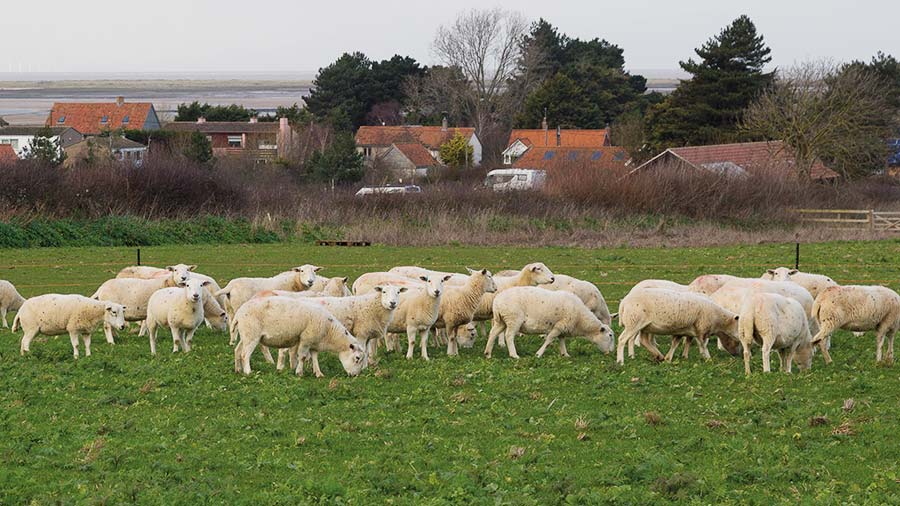Opinion: The case for regen ag is more emotion than analysis
 Sheep grazing cover crop © MAG/Judith Tooth
Sheep grazing cover crop © MAG/Judith Tooth Fifteen years ago I was so concerned about the then government’s inappropriate policies towards food security that I wrote a discussion paper outlining the facts. It was copied to opinion formers and MPs – and Farmers Weekly published it.
I won’t burden you with it all, but it concluded: “It would not be much of an exaggeration to suggest that, within the foreseeable future, it will be necessary to deal with the production of food as during a war.”
See also: The time has come to recruit a minister for food security
I further pointed out that, in the decade previous to my writing the piece, food security had reduced from 86% to 70% and suggested it was likely to reduce further – today it is nearer 60%. I stated that such a decline gathers momentum and would be difficult to reverse.
We were, at the time, at the beginning of the world economic crisis of 2008-09 and, soon after my paper was published, another appeared, written by a group of the world’s most eminent economists, arguing essentially the same thing and calling for action.
The basis for these arguments was the increase in world population – still believed likely to peak at 9.5bn in about 30 years.
They did not include a Covid pandemic or a war between Ukraine and Russia in their assessment.
But, as Harold MacMillan replied when asked what was the most difficult thing about being prime minister: “Events, dear boy, events” – in other words, unforeseen happenings that have to be dealt with.
Clearly these attempts to influence government policy had no effect, because every administration since has spent more time concerning itself with the environment than the production of food.
Not that I am against environmentalism. I am very much for it. But I believe enhancing the environment should, and can be, integrated with the sustainable production of food.
Well, it’s taken a war, and the government seems to have at last accepted the need for domestic food production rather than relying so much on imports.
In a belated response to Henry Dimbleby’s 2021 report, Defra launched its National Food Strategy a few weeks ago.
It has been welcomed by the NFU et al largely because it does at least modify priorities and aims to “broadly maintain” domestic production.
But, as Henry Dimbleby said, it does nothing to control imports produced to inferior standards and, like me, I suspect he thinks it is too half-hearted.
But I have another concern. Such is the momentum behind environmental farming, for instance rewilding, regenerative farming, Groundswell and the like, that it has become the aspiration of the agricultural literati. A bit like “wokeism”, it comes with more emotion than analysis.
I must say this quietly because it will offend some and these initiatives contain some excellent ideas. But they often neglect to include optimum yields. If their line of thought comes to dominate, the law of unintended consequences will kick in.
We need change, of course, but it has to be carefully thought through and skilfully managed.
My 2007 paper ended with these words: “The judgment of future generations will depend on whether we accept the inevitability of change and plan for it with foresight, so that we survive and leave our successors a viable world. Or whether, by misguided policies, we allow ourselves and our children to become its victims.”

